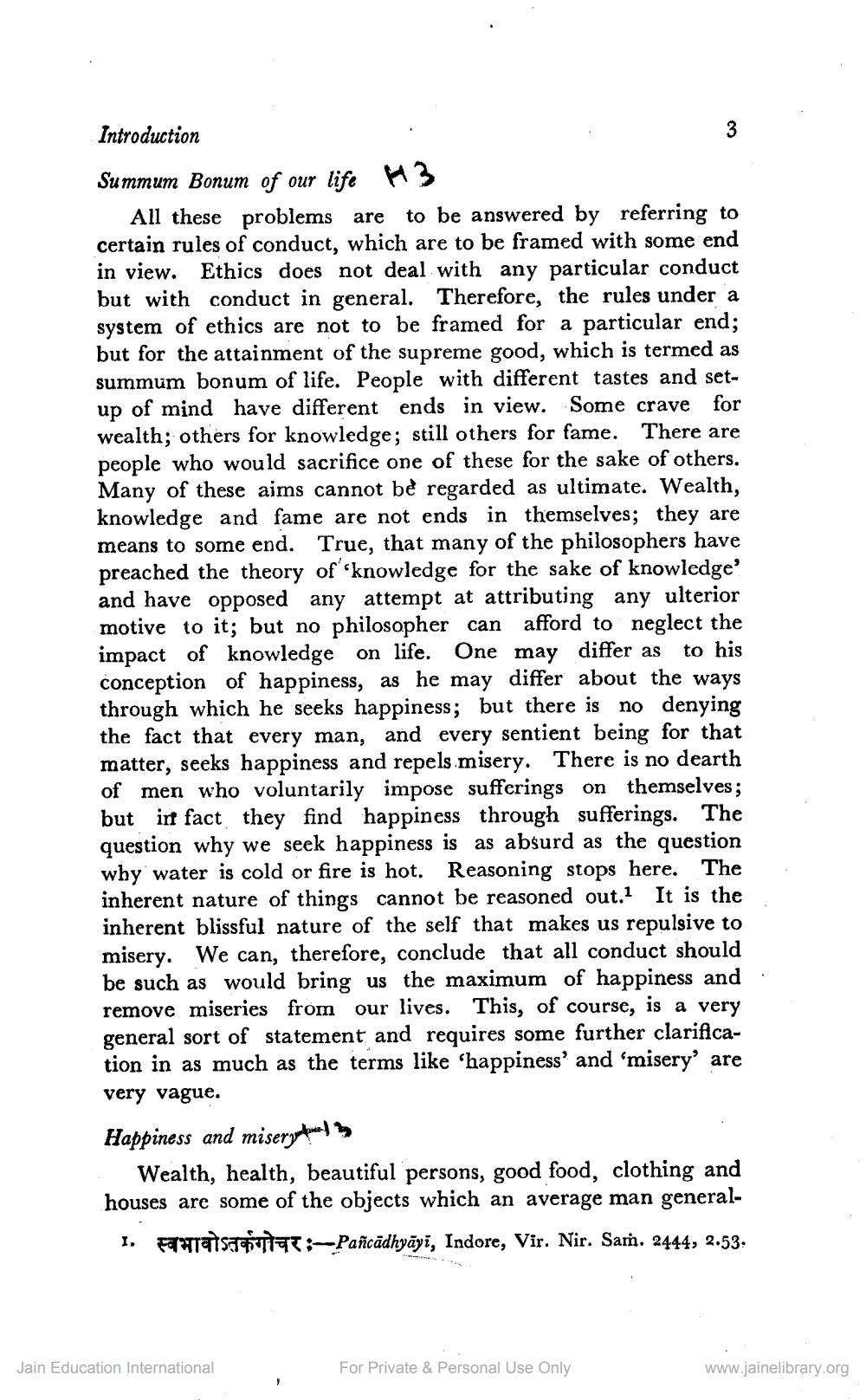________________
Introduction
Summum Bonum of our life 23
All these problems are to be answered by referring to certain rules of conduct, which are to be framed with some end in view. Ethics does not deal with any particular conduct but with conduct in general. Therefore, the rules under a system of ethics are not to be framed for a particular end; but for the attainment of the supreme good, which is termed as summum bonum of life. People with different tastes and setup of mind have different ends in view. Some crave for wealth; others for knowledge; still others for fame. There are people who would sacrifice one of these for the sake of others. Many of these aims cannot be regarded as ultimate. Wealth, knowledge and fame are not ends in themselves; they are means to some end. True, that many of the philosophers have preached the theory of knowledge for the sake of knowledge and have opposed any attempt at attributing any ulterior motive to it; but no philosopher can afford to neglect the impact of knowledge on life. One may differ as to his conception of happiness, as he may differ about the ways through which he seeks happiness; but there is no denying the fact that every man, and every sentient being for that matter, seeks happiness and repels misery. There is no dearth of men who voluntarily impose sufferings on themselves; but in fact they find happiness through sufferings. The question why we seek happiness is as absurd as the question why water is cold or fire is hot. Reasoning stops here. The inherent nature of things cannot be reasoned out. It is the inherent blissful nature of the self that makes us repulsive to misery. We can, therefore, conclude that all conduct should be such as would bring us the maximum of happiness and remove miseries from our lives. This, of course, is a very general sort of statement and requires some further clarification in as much as the terms like 'happiness' and 'misery' are very vague. Happiness and miserythm
Wealth, health, beautiful persons, good food, clothing and houses are some of the objects which an average man general
1. Fantasmat :- Pañcādhyāyi, Indore, Vir. Nir. Sam. 2444, 2.53.
Jain Education International
For Private & Personal Use Only
www.jainelibrary.org




